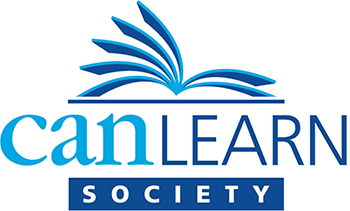Family Literacy Day takes place on January 27th. Its purpose is to raise awareness about the importance of reading and engaging in other literacy-related activities as a family. Since 1999, thousands of schools, libraries, literacy organizations and other community groups have taken part in this initiative.
With Family Literacy Day 2022 right around the corner, we would like to thank all families who have participated in CanLearn family literacy programs for reading, learning, and growing with us!
As the Covid-19 pandemic continues to continue to impact families and schools, family literacy is more important than ever. What can you do to build reading skills in the context of your family?
We invite you to consider the following strategies:
- Keep in mind that it is not just children that benefit from reading! Reading is very, very good for your own health (https://www.healthline.com/health/benefits-of-reading-books), so make sure you read something for yourself every day!
- Make reading a priority in your home! Drop everything, turn your phones and other devices off, and spend some time reading after dinner, or find another system that works for your family. Allow your children to see you reading and talk about what you were reading with enthusiasm. It is important to show your children that you value reading and are a reader yourself.
- Read to and with your children! Read regularly and often. Read as fluently as you can. Use different voices for characters, sound effects, and variations in voice volume and tone. Stop frequently to ask questions, predict, infer, and make sure your child understands the story. Make connections with other books and everyday experiences. As they move towards being independent readers, listen to them reading. Don’t feel you need to correct every error or teach every sound that your child struggles with. Remember that your role as a parent is to make it fun and enjoyable for you and your child by encouraging them and building up their confidence.
- Get your family talking! Some researchers think that up to 15% of young school children don’t have the oral language skills to cope fully with the demands of schools (Hart and Fielding-Barnsely, 2009). Many of these kids struggle with reading, some for their whole lives. The good news is that many activities you and your children already enjoy doing together can encourage and build language skills. For example, “What was your favourite thing about today?” is a great dinner table conversation starter you can use.
We are only a few weeks into the year 2022. Although we are still unsure of when exactly the Covid-19 pandemic will end and what the overall impact will be, we can already see the negative impact it is having on our society’s mental wellbeing. Reading can help us all increase our resilience during these unprecedented times and strengthen our social-emotional skills. Often called “soft skills,” these are the skills that help us get along with other people, regulate our emotions and interact positively with the world. Now, more than ever, we must talk, think, and read about social-emotional issues and become equipped to cope with life challenges.
We would like to share a few of our favourite books that can help us tackle social-emotional issues and build skills to cope with life challenges.
Books to share with preschool children:

This is a wonderful book to teach kids about emotions. It covers a range of feelings and will help your children start to identify situations or times they may feel angry, sad, disappointed, and joyful!

One day, Color Monster wakes up feeling very confused. His emotions are all over the place; he feels angry, happy, calm, sad, and scared all at once! To help him, a little girl shows him what each feeling means through colour.

This is a good book to help children understand that its ok to “have moods” or “be grumpy sometimes.
Books to share with school-age children:

This is an engaging and interactive book that guides children through the practice of naming their feelings and the physical sensations that accompany them. Learning to tune into their bodies and do this, is a foundation for self-regulation. Listening to My Body is a wonderful social-emotional tool for families!

If you drop just one soda can out the window, it’s no big deal … right? But what if everybody did that? What if everybody broke the rules … this and other questions are answered in a child-friendly way and show the consequences of thoughtless behaviour.

This story tells the tale of a boy who is very wiggly, and people keep telling him that he has ants in his pants. He keeps trying to find those ants until his mom finally clues him in that they are talking about his wiggly he is.
And a Few Books for YOU (the parent):



When you read together as a family, you will experience moments of joy similar to these:
… or you may decide to do some singing and dancing:
… or some reflecting:
We wish you a lot of reading, talking, laughing, and dancing together on January 27th and every day!
